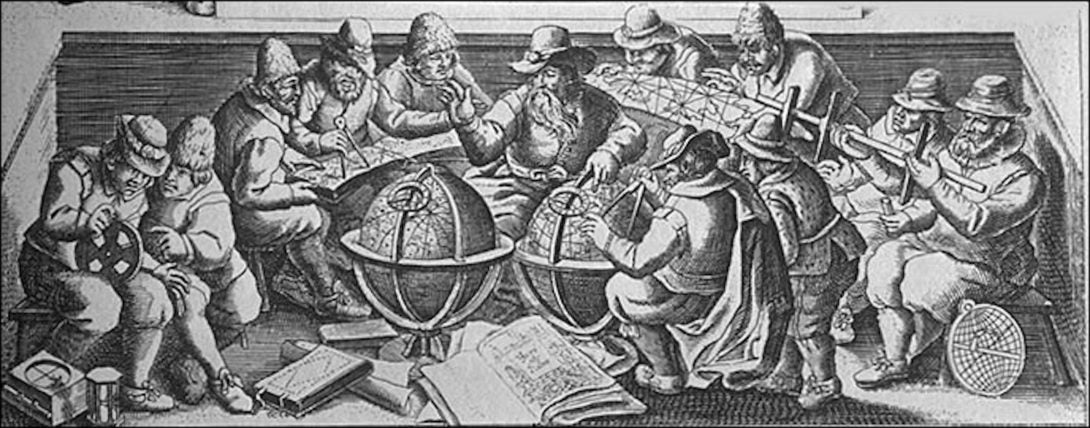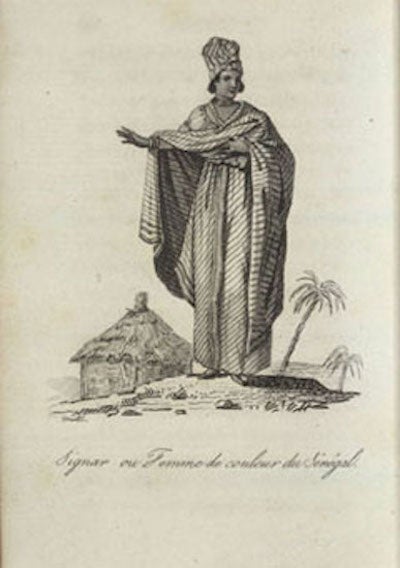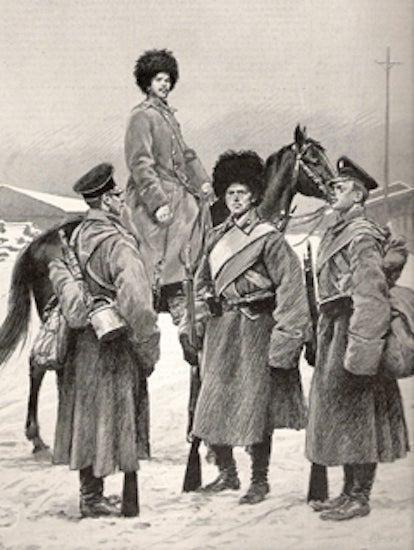Encounters
Encounters, Ethnographies, and Empires Heading link

The UIC Department of History invites applications for its PhD concentration, “Encounters, Ethnographies, and Empires.” The Encounters concentration draws upon the expertise of faculty with regional specializations in Africa, Asia, Latin America, Europe, and the United States to offer students who specialize in any one of these areas the opportunity for comparative study and research on topics related to encounters between different peoples, cultures, and continents. Faculty participating in the concentration share common interests in how empires from the ancient world to the imperial nation-states of the twentieth century proclaimed the transformative power of universals such as religion, civilization, or democracy. Empires were also the site of interactions and encounters, which led to negotiation and exchange, as well as relations of domination and resistance. We also investigate how empires produced ethnographies of difference, using religion, science and civilization to classify and rank imperial subjects, with the result that cultural difference underpinned imperial power. Course work will provide students working in different regions of the world with frameworks that cut across regional specializations, providing a firm grounding for the exploration of global themes as well as training in the regions of their own specialization.
applying to encounters Heading link

Applying to Encounters
You apply to the Encounters program when you submit your application for admission to the History PhD itself. Simply mention in your interest in Encounters in your statement of purpose and be sure to check the “Encounters” box when you fill out the Reference Cover Sheet. Everyone applying to Encounters must submit all application materials by the December 1 deadline.
Requirements for the Concentration
Students entering with a BA must complete four graduate colloquia offered by the Encounters faculty, most but not all of which are offered as History 594. (Those who enter the program with a Master’s degree in hand must complete three such courses.) In addition, Encounters regularly sponsors fundamental courses in European history (History 511) and World history (History 503), which can provide the framework for one of two required minor fields. When a student is taking a research seminar, s/he should enroll in only one other course that semester; otherwise, the normal, anticipated course load is three graduate (500-level) courses per semester. Encounters students fulfill these requirements concurrently with the other requirements for the PhD in history.
What Does a Typical Course of Study Look Like? Heading link

What Does a Typical Course of Study Look Like?
Students entering the program with a BA will take the History Department’s gateway graduate course – History 501 – in their first semester. This is also a when you will take your first colloquium (History 594), a course centered on a theme or topic. Recent colloquia have been on offered on Commodities, Class, and Landscape in Latin America; Food Systems in World History; Colonies and Empires; The Dissolution of the East European Imperium and the Construction of National Communities; Empires, Encounters and Ethnography from the Renaissance to the Victorian Period; and Nationalism and Modernity.
In the spring semester of your first year, you will take a second colloquium and your first research seminar. You will also have the opportunity this semester to explore other course offerings in History, and allied departments if you are preparing an external minor field. The second-year builds upon the first with a combination of colloquia and a research seminar in the spring. You may want to explore a topic in greater detail by taking a one-on-one directed readings course with one of the faculty. Throughout their course work, students are encouraged to confer with advisors on dissertation topics and prepare grant applications.
Most students will take their Ph.D. qualifying exams (called prelims at UIC) in the fall or spring of their third year. Next semester comes to the dissertation prospectus and perhaps some early writing on your dissertation topic. After that, it’s into the field for research!
Awards Heading link
Many Encounters students have won prestigious awards.
-
Awards Won by Encounters Students
Jochen Arndt has been awarded an SSRC-IDRF (Social Sciences Research Council-International Dissertation Research Fellowship) funded by the ACLS (American Council of Learned Societies) for 2012-2013. With the help of this award he is conducting research in multiple locations: Edinburgh (Scotland), Cambridge, Oxford and London (England), Herrnhut (Germany), and Cape Town, Grahamstown and Johannesburg (South Africa) in order to conduct research in missionary society archives there for the next nine months. His project, “Missionary Linguists, African Converts and the Making of the Xhosa Nation, 1799-1930” will show how Missionary Linguists and African Converts together created the Xhosa Nation and ethnic identity of modern-day South Africa.
Julie Fountain has received the Provost’s Award for Graduate Research (Fall 2010) from the UIC Graduate College and the Marion S. Miller Dissertation Fellowship (2012-2013) from the History Department. These funds have contributed to researching and writing her dissertation, “Modern Jobs for Modern Women: Female Military Service in Britain, 1945-1962,” which explores the tensions surrounding women’s work in the 1950s while telling the story of the first women to serve in the British armed forces during peacetime. The project covers not only the policy decisions that shaped women’s military role in this period, but also the ways the women themselves understood their service.
Michael Goode was awarded the 2010-11 Friends of the MCEAS dissertation fellowship at the McNeil Center for Early American Studies at the University of Pennsylvania. His dissertation, “Gospel Order among Friends: Colonial Violence and the Peace Testimony in Quaker Pennsylvania, 1681-1722,” examines slavery, imperial warfare, and the settler-Indian trade in alcohol as interrelated forms of violence in colonial Pennsylvania and situates Quaker peace discourse – what Friends termed “the peace testimony” – within the broader Anglo-American concern with family order and violence on the colonial frontier. During 2011-12, Goode was a graduate scholar-in-residence at the Newberry Library, and he also won several short-term research fellowships, including a one-month residential fellowship at the Library Company and Historical Society of Pennsylvania. He was also awarded the Dean’s Award in 2011-12.
Melissa Hibbard has won a 2012-2013 Fulbright IIE Award for Poland, and an American Council of Learned Societies Dissertation Research Fellowship for East European Studies. Melissa’s project is tentatively entitled “Child Health and Welfare in Poland, 1914-1950.” Melissa is in Warsaw on a Fulbright during academic year 2012-13, where she is working in the state archives, various libraries, and the Jewish Historical Institute collection. The dissertation focuses on Poland in the aftermath of the First World War, looking at the way the new state constructed networks of care to manage the needs of its population of vulnerable children (including child refugees and war orphans). It encompasses both Jewish and Polish-Catholic populations, international as well as local assistance, and both state welfare and private philanthropic aid to demonstrate how Polish society envisioned the future of its children and who should have responsibility for shaping that future.
Jenna Nigro has received the Dean’s Scholar Award, a dissertation completion fellowship from the UIC Graduate College. Her dissertation, “Cultivating Subjects: Agricultural, Scientific, and Moral Experiments and the Making of French Senegal, 1817-1870,” examines French agricultural schemes, missionary projects, and varied economic and political strategies in Senegal to show how experimentation with different colonial models shaped the development of the colony.
Peter Strickland has been awarded the Deena Allen Memorial Fellowship, as well as the John B. and Theta Wolfe Fellowship for 2012-13 by the History Department. These fellowships have allowed him to travel to Belfast, Northern Ireland to conduct research in the records of both individuals and key organizations critical to the development of Ulster unionism in the late nineteenth and early twentieth centuries. Peter’s project, “Forging an Ulster Unionism: Empire, Gender, and Violence, 1893-1912,” examines the role of discourses on gender, empire and violence in shaping an Ulster-specific brand of unionism during these crucial formative years.
Participating Faculty Heading link
Participating, Faculty
Sunil Agnani: European Enlightenment, Empire, and Decolonization, 18th c. British and French thought
Danielle Beaujon: Modern Europe, France, North Africa, Colonialism, Policing
Joaquin Chavez: Latin American and Caribbean, Cold War in the Global South, Atlantic World
Jonathan Connolly: British empire, modern Europe, history of emancipation, legal
Jonathan Daly: Modern Russia, Modern Europe
Nicholas Doumanis: world history, modern Europe, Mediterranean, Greece, diaspora
Gosia Fidelis: Eastern Europe, Modern Europe, Gender, Comparative Communist Systems
Fredy Gonzalez: Latin America, China, immigration
Laura Hostetler: Late Imperial China, Comparative Early Modern Empires, History of Cartography and Ethnography
Ralph Keen: Early-Modern Religious and Political Thought
Clare Kim: US, Asian American, intellectual, history of science and technology (STS)
Young Richard Kim ancient Mediterranean world, late Antiquity, late ancient Christianity, Byzantine Studies, Hellenic Studies
Mark Liechty: Consumerism/Tourism in Asia, Cultural Theory
Rama Mantena: South Asia, British Empire, Historiography, Public Sphere
Ellen McClure: French, intellectual, religious
Celso A. Mendoza: Mexico, Colonial Americas, Indigenous
Marina Mogilner: Modern Russia, empire, and imperialism
Hayley Negrin: Atlantic World, Native American and Indigenous Studies, Southern History
Junaid Quadri: Middle East, Islam, colonialism, intellectual, religious
Keely Stauter-Halsted: History of Poland, Eastern Europe, gender, migration